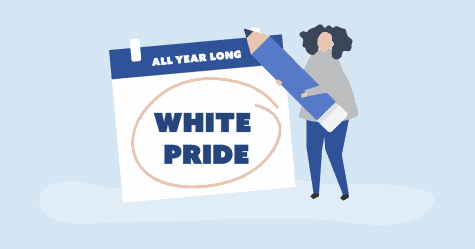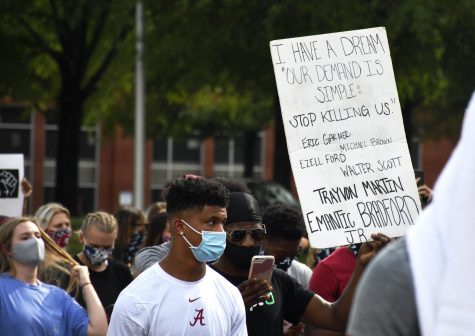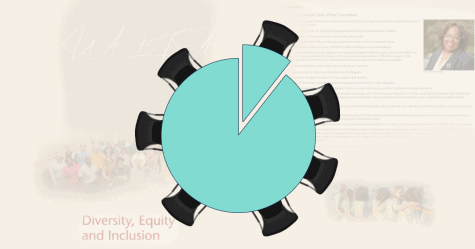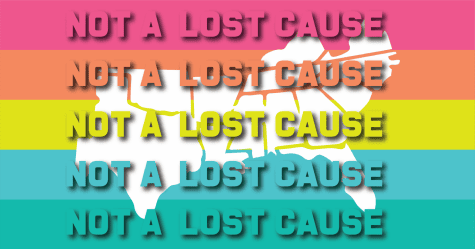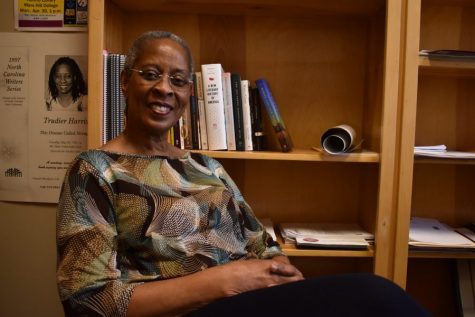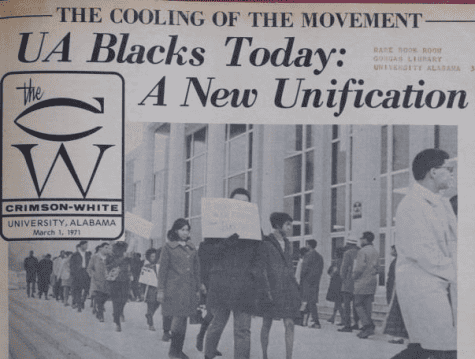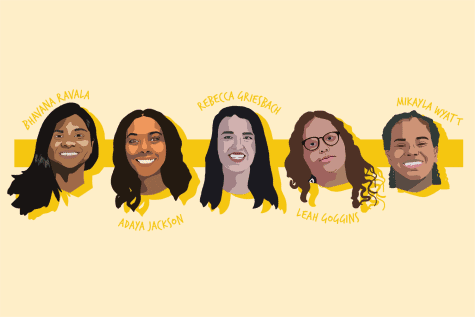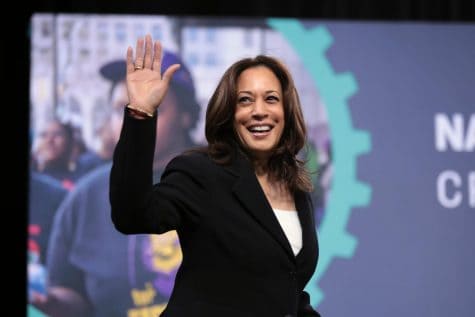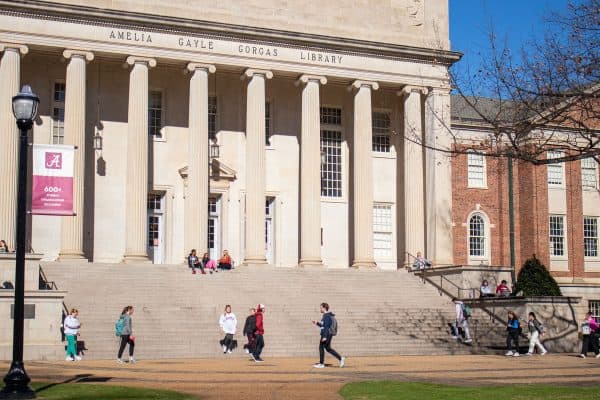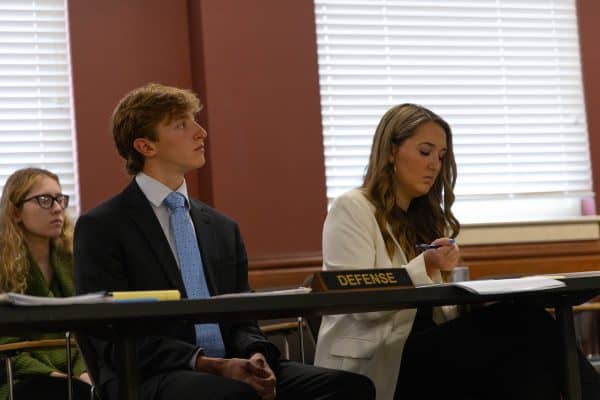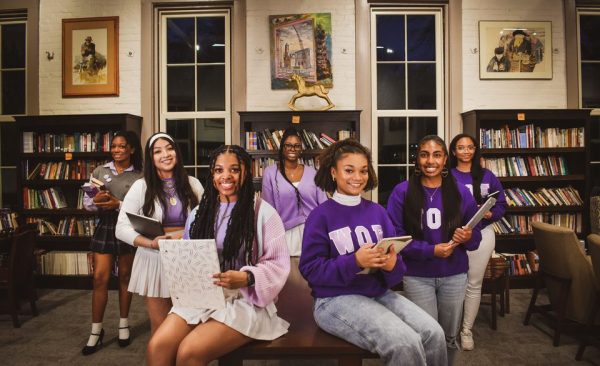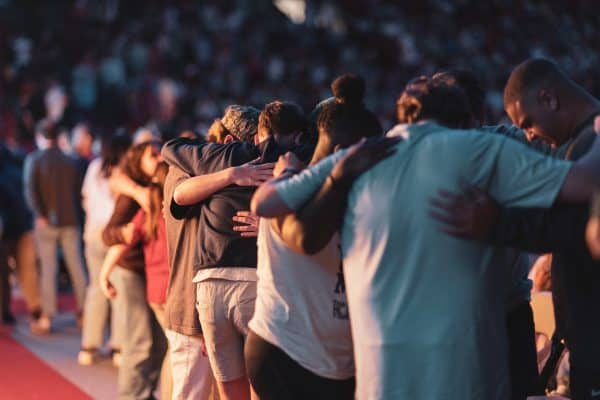These Black authors fill Alabama with poetry and community
“I think everyone should be a writer,” one local poet said. “I think everybody is a writer.”
Read more from our Black History Month Edition:
For centuries, poetry has been a tool for self-expression and protest, particularly among Black poets. While Phyllis Wheatley and Maya Angelou have long passed, Black poets are stepping up now more than ever.
The poet Amanda Gorman was thrown into the spotlight this past month after reading her work at President Joe Biden’s inauguration. Gorman’s powerful recitation of “The Hill We Climb” struck the hearts of people around the country, even earning her a spot in the Super Bowl pre-show.
Gorman isn’t the only poet making waves. Black poets across the country are using their talents and voices to advocate and create community.
In Birmingham and Tuscaloosa, the poetry and writing scene has grown significantly in just the past couple of years.
In 2018, Ashley Jones, a poet and writing teacher at the Alabama School of Fine Arts, created the Magic City Poetry Festival after seeing similar organizations bring the art of poetry to their community. Throughout the years they’ve held workshops, readings and programs, as well as partnered with national poetry organizations like PEN Out Loud.
The festival’s goal is to bring poetry to the Greater Birmingham area and to create a place for the poetry community to thrive.
“I grew up in Birmingham. We don’t always have all the light, sparkling things that other places have and it was definitely less sparkling when I was growing up millions of years ago,” Jones said. “I just didn’t see as a kid a lot of places where writing in particular was celebrated. [So,] I thought, well, Birmingham has just as much culture and just as many great artists, maybe I can do that.”
Today, Birmingham is a hub for artists and art-lovers, with beautiful murals, museums, and organizations like the Magic City Poetry Festival that foster community and a love for art. However, this hasn’t always been the case.
Jones found that while growing up, Black writers were rarely taught in classrooms. She said she found the lack of Black authors when she was growing up confusing and isolating.
It wasn’t until Jones read “Honey, I Love” by Eloise Greenfield, a poetry collection centered around the idea of blackness, that she was inspired to write.
After reciting from the collection to her second grade class, she realized how powerful the poem made her feel and has been reading more Black voices and writing her own poetry ever since.
“I started to find these voices who started to teach me that you can write about Blackness, you can write whatever you want,” Jones said. “You are valid in the writing world. Once I started to see that, the game changed. I was like, ‘Okay, you know what, I don’t have to aspire to a certain whiteness, honestly. That’s not what I have to write.’ And then when I moved away from Alabama, that’s really when it came because I was like, ‘Wait a minute, I’m Southern. I don’t have to run away from that.’”
Her first poetry collection, entitled “Magic City Gospel,” was an ode to the South and the Magic City. While Jones’s poetry tells the story of herself, it also tells the story of victims of police brutality and moments that shaped Alabama and the U.S. into what they are today.
“My themes are pretty much centered around identity,” Jones said. “And there are several branches. There’s my identity as a Black person, as a Black woman, as a southerner, and as a person who is aware of history and social justice as well.”
In the South, it’s not uncommon to be surrounded by the history of slavery and the Civil Rights Movement. In downtown Birmingham, the 16th Street Baptist Church stands as a reminder of the crimes committed against Black people during the 1960s. In Tuscaloosa, the University has buildings and monuments built by slaves prior to and during the Civil War.
While poetry is often seen as a personal art form, it has long been used in activism and advocacy, particularly among southern Black poets. Throughout the Civil Rights Movement in the 1960s, poets like June Jordan and Birmingham-born Margaret Walker used their poetry as a form of resistance and protest while also instilling pride in their identity as Black women.
For Kwoya Fagin-Maples, a professor in The University of Alabama’s Creative Writing MFA program, the history of the South and her experiences growing up in South Carolina and living in Alabama have heavily influenced her.
She said being surrounded by a landscape heavy with history inspires her to write about that history.
“The South is replete with story,” Fagin-Maples said. “There’s history all around. Even our landscape is reminiscent of history. There’s so much beauty and so much complexity that I think any writer would always have a wealth of things to draw from in terms of subject matter. So I feel like it certainly influences me, especially the landscape, and that’s something that I find myself coming back to a lot in my writing.”
After meeting a Southern historian during a writing workshop, Fagin-Maples decided to write her first poetry collection about Dr. James Marion Sims, the father of American gynecology. The collection, entitled “Mend,” tells the story of the enslaved Black women in Mount Meigs, Alabama, who were experimented on by Dr. Sims during the mid-19th century.
“The thing about that story, the injustice of their story, the women’s story never being told. The fact that they were so overlooked by Dr. James Marion Sims and also by history, that’s what compelled me to write about them,” Fagin-Maples said. “I want these women to be seen as human beings.”
Fagin-Maples said a large influence in her poetry has been her experiences with Cave Canem, a national organization for Black poets that hosts rigorous writing workshops.
“Being a part of [Cave Canem] and hearing all of those different stories, witnessing the courage of those writers to confront the realities of issues with race, things that occurred throughout history is what inspired me to do the same thing,” Fagin-Maples said. “There seems to be an undercurrent with Cave Canem that we write the stories for the people who can’t write the stories.”
While poetry is often beautiful and delicate, it can also give readers and the writers themselves the power to change minds and inspire others.
Along with being a force for protest, poetry has also found its power through community. Whether in national organizations like Cave Canem or local organizations like the Magic City Poetry Festival, poets continue to inspire each other and fight for change.
Alexus Cumbie, a UA graduate student in communication studies, founded Literary Vibes Birmingham when she was a senior in high school. Her organization provides a space and stage for young artists to showcase their work and be surrounded by other Southern artists.
Cumbie got into writing after she wrote and published a small children’s book about dogs when she was a child. She said this inspired a passion for being able to tell her own story of growing up and living in the South.
“I think the South’s history is my history,” Cumbie said. “Being from Birmingham, the heart of the Civil Rights Movement, they were fighting for Black lives, fighting for Black rights. And so it’s very easy to sort of tie those connections for me, especially me being a person who is so interested in politics. A lot of times my poetry ties directly back to political ideologies and my passion for politics.”
For many poets, their poetry is a form of activism and advocacy that fights against historical misconceptions and current social issues.
“I think that poetry is innately political, and innately talks about social issues because you’re talking about your experience,” Cumbie said. “And one way to sort of bridge the gap of understanding between communities that don’t interact or don’t understand each other is to share your experience.”
Literary Vibes Birmingham also uses poetry to help increase literacy rates throughout the South, Cumbie said. She added that when people don’t think that they’re good at poetry, the act of writing and expressing yourself on paper can influence them greatly.
Writing, and poetry in particular, is how many southerners find their voice and their power.
“I think everyone should be a writer,” Cumbie said. “I think everybody is a writer.”
With the emergence of poetry festivals, organizations and poetry collections, Alabama has earned its spot in the poetry world as a force for activism and advocacy.


